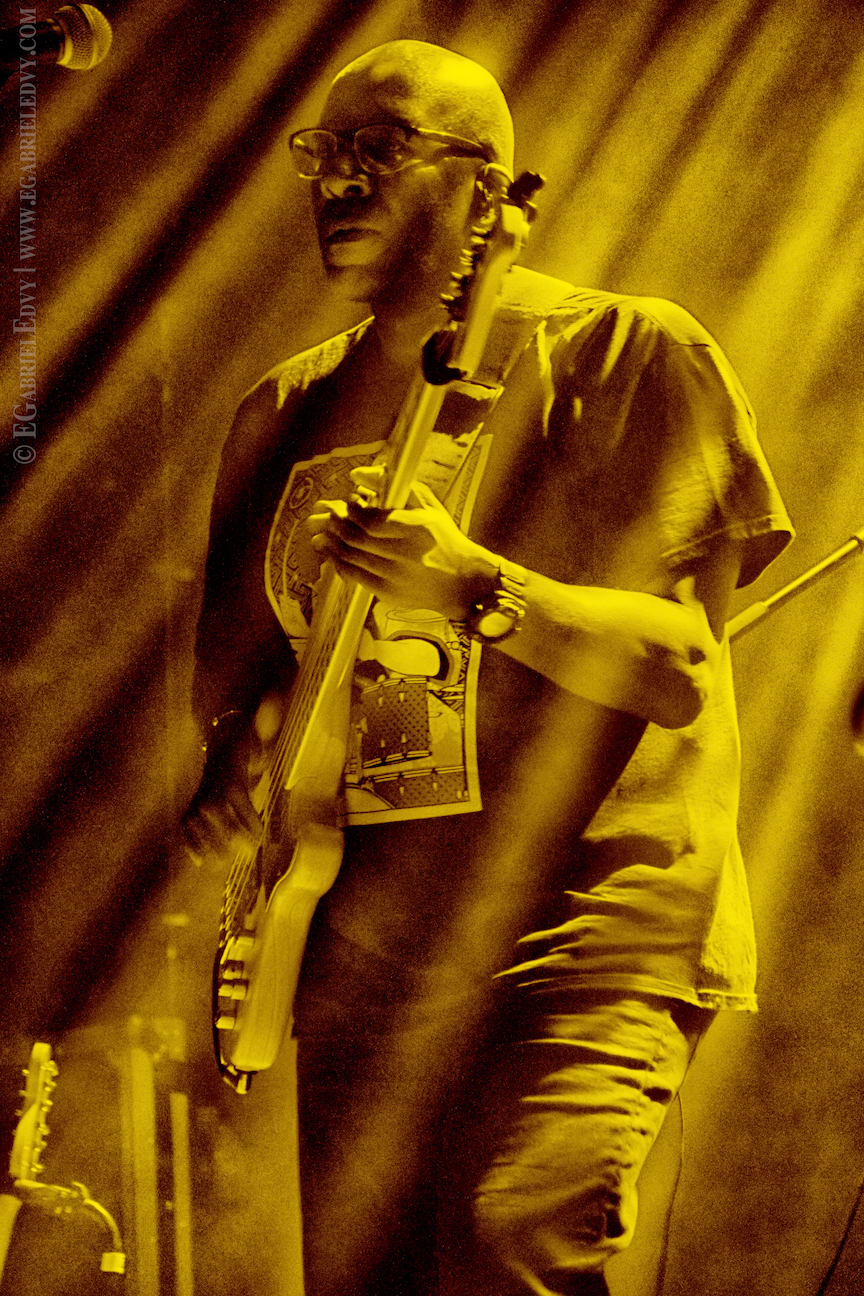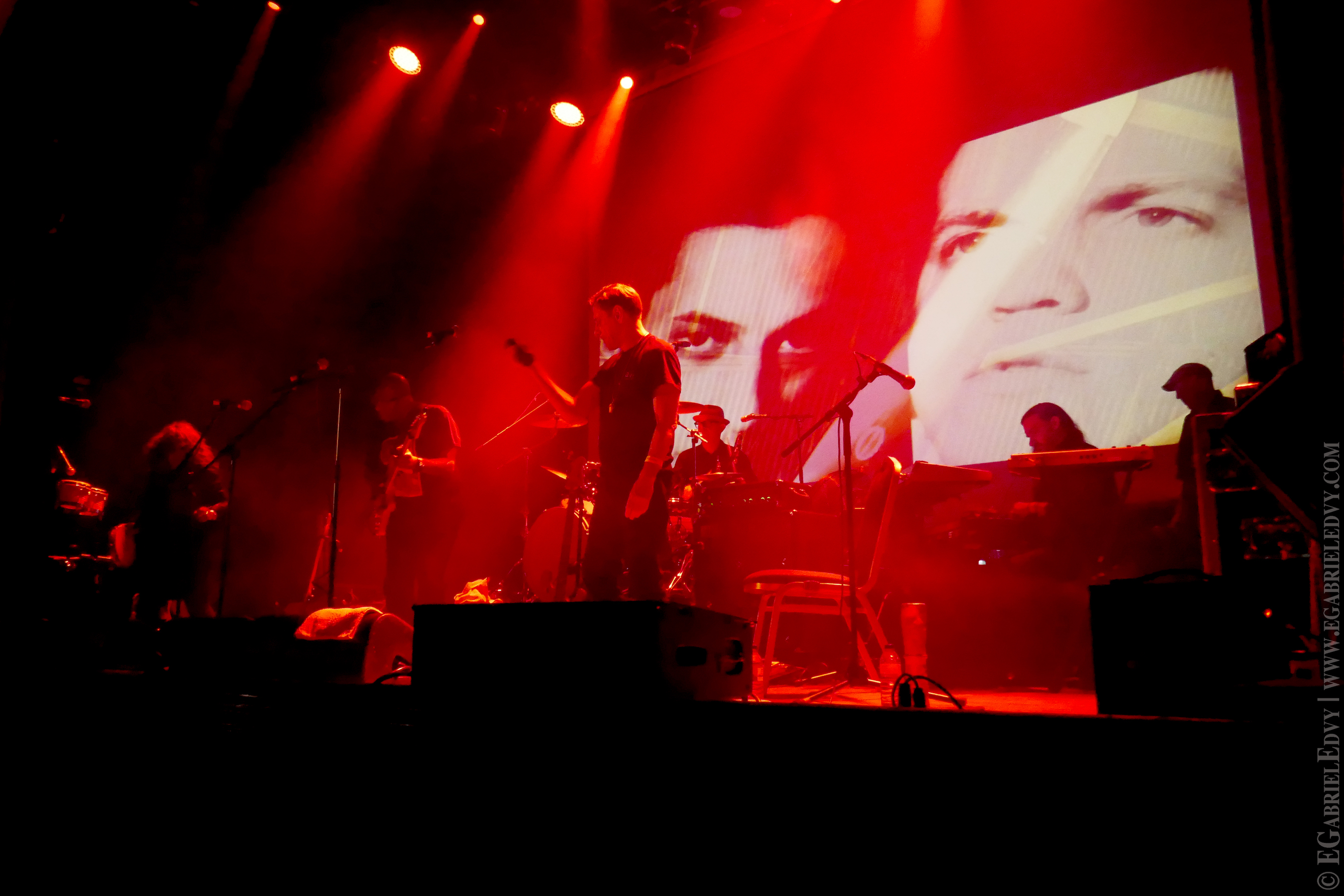A CERTAIN RATIO − 40 YEARS IN FLIGHT

More than four decades on and dance-funk punks, A Certain Ratio, are still going strong with a plethora of music behind them, having just released some hidden gems from their archive as a special box set compilation. Jez Kerr, Martin Moscrop and Donald Johnson have remained the core of the band since its early days as Factory pioneers who share their heritage and rubbed shoulders with contemporaries Joy Division and New Order. ACR take time out from their busy anniversary tour to talk about their past, present and future over 40 years, including Tony Wilson’s magic touch, the Talking Heads cover that Grace Jones never sang on and their work on a brand new studio album.
A Certain Ratio celebrates its 40th anniversary this year. What does reaching this milestone mean to the band?
Donald: It’s good to see our music still being relevant and stimulating to so many new artists.
Martin: I wish it was my 40th birthday. If you had asked me at the age of 19 if I thought ACR would still be going when I was 58 years old I would have laughed at you. I personally am very proud of our 40+ years of making music and I will die a happy man in the knowledge that I have left this planet making people think, “What was that???”
Your box set release ‘ACR:BOX’ is out. How does this tie in with your 40th year celebrations and how did you go about finding all the material?
 Martin: Coincidental. We have kept all our masters to everything and Donald has always made sure that they were in a safe place. The difficult thing was trawling through them. I started the process by listening and sorting some stuff in my studio and then we went to Oxygene in Salford and transferred the digital stuff we had on DAT. We also had to bake and transfer a number of old analogue tapes that we had had in storage for many years, some of which have never been heard since they were originally made. It was a long process but exciting discovering stuff we had forgotten about.
Martin: Coincidental. We have kept all our masters to everything and Donald has always made sure that they were in a safe place. The difficult thing was trawling through them. I started the process by listening and sorting some stuff in my studio and then we went to Oxygene in Salford and transferred the digital stuff we had on DAT. We also had to bake and transfer a number of old analogue tapes that we had had in storage for many years, some of which have never been heard since they were originally made. It was a long process but exciting discovering stuff we had forgotten about.
Donald: Mute encouraged us to dig deep into our digital archive, something that we have never really done. I’m glad they did because we found great songs that we had forgotten about.
You recorded a new version of ‘W.S.L.U’. Why did you decide to revisit the 1990 single?
Donald: I’ve always wanted to redo this song and strip it down to its basic elements, which are guitars and vocal. Adding strings and not having any drums or percussion has brought out an element to that song that shows how powerful and beautiful its arrangement is. When we do promotions at radio stations, mainly in Europe, we have always played this acoustic version.
How did you first meet Simon Topping and Peter Terrell and what happened in the band before you signed to Factory?

Jez: I saw A Certain Ratio at Pips discotheque: Pete on guitar; Simon on bass, vocals and noise generator. I chatted to Pete after the gig and a month later I bumped into Simon on the street and joined the band. We played at Band On The Wall several times thanks to the Manchester Musicians Collective and Martin joined the band after one of these gigs. Rob Gretton spotted us at Band On The Wall and asked us to play at the new Factory club in Hulme. After the gig, Tony Wilson asked us to record a single.
Martin. I saw Jez, Simon and Pete playing at the Musicians Collective in 1978 – that was Jez’s first gig with Simon and Pete. I was on the same bill with my previous band Alien Tint. I thought ACR were amazing and had never seen anything like it and told them so. I was dressed the same way as them and they thought I looked out of place with Alien Tint so they asked if I wanted to join them. That night I told Alien Tint I was leaving them and joining ACR.
How did you sign to Factory?
Jez: As far as I know there never was a contract.
Martin: We never signed. Rob Gretton saw us first, told Tony Wilson about us and he loved us the first time he saw us and asked if he could manage us.
What was the mood in Manchester in the late 1970s that influenced the sound of your early records?
Martin: Gloomy.
 Where did the band’s funk influence originate from?
Where did the band’s funk influence originate from?
Martin: Listening to funk and disco, James Brown, Parliament, Banbarra and then getting Donald as our drummer to add funk rhythms to our ethereal, Velvet Underground-style sound.
Is it true that Talking Heads were influenced by watching you play funk when you supported them for six gigs?
Donald: Talking Heads were brilliant with us on that tour; they asked their crew to give us whatever we needed as far as lights and PA. Most nights they were at the side of the stage watching us. After that tour Talking Heads’ next album was ‘Remain In Light’ which saw them experimenting and creating their own brand of dance music.
What was it like being managed by Tony Wilson and what did he do for the band?
Donald: Tony was a visionary: the coloured wallets on ‘The Graveyard and The Ballroom’ was his idea. He also wanted it to be a cassette-only release. AHW’s best quality was that he gave us the tools physically and mentally to be creative. He continues to make things happen.
Martin: Tony opened a lot of doors for us and helped make us prolific in the early years with all the gigs we did and albums we made. Being given this opportunity to grow as a group of young men is invaluable and without Tony this would never have happened. He had so much energy and never stopped being creative. To this day, I can’t imagine how he managed to hold down a full-time job as a journalist and presenter at Granada [TV], produce his own music programmes, run a record label, manage ACR and the Durutti Column and put on gigs at the Factory.
What are your memories of playing at The Haçienda?
Martin: We used to play there about once every 6-9 months and were like Haçienda residents. There were periods when we weren’t getting paid what we should by Factory so we had to sign on [for benefits] for short periods. I remember playing the Haçienda one night and seeing the guy from the dole office at the front of the stage going nuts to us and I thought, “Oh shit, I have to sign on tomorrow morning.” When I went to sign on the next day he was waiting for me and asked the usual question, “Have you done any work paid or unpaid in the last two weeks?” I said no and he whispered under his breath, “Great gig last night Martin!”

Jez, you did guide vocals on ‘Houses In Motion’. How do you think this worked out in the single edit and how does it compare to the Talking Heads original?
Jez: When I heard the vocal I had to laugh, I think I had written the words down wrong (no internet), hence the mistakes. We could have overdubbed a new vocal but I kind of like the mistakes, I know there are many David Byrne fans who vehemently disagree with me.
Were you going to release an entire album with Grace Jones before the single was pulled? Why did she take an interest in you and did she really want you as her backing band?
Martin: It was Grace Jones’ A&R manager who set up the idea of the collaboration (with Tony Wilson). Grace came to the studio to meet us, which went well, but the A&R manager was sacked when Chris Blackwell found out about the project because he didn’t like the idea of Martin Hannett producing Grace Jones because he was her producer. The idea was for Martin to be her producer with ACR as the studio band.

How did the departure of Simon and Peter in 1982 affect the rest of the band?
Martin: Of course people leaving affects what the band produce and sound like, but time moves on. These changes are the catalyst for producing something new and different so they can work in a positive way.
What was it like touring America in support of New Order in 1985?
Donald: Joy Division and New Order have always looked after us; in the early days we played lots of gigs together.
New Order played their first gig as NO unannounced in Manchester with us at The Beach Club. During their US tour Rob Gretton, their manager, made sure we were looked after and he even paid the overtime rate to the union at the Felt Forum New York so we could have a soundcheck.
You had indie chart success with many of your releases. Did this mean anything to you at the time?
Martin: The indie charts were quite important in the ’80s and ’90s so it was always good to get to number one.

Your last studio album, ‘Mind Made Up’, was released over 10 years ago. Are you currently working on a new album?
Martin: We have nine tunes at various stages of completion at the moment with some very interesting and exciting collaborations. We have surprised ourselves in that we are producing some of the best music we have ever made and it is different from anything we have done before. I keep on thinking we will run out of ideas to merit us creating new and original music but we haven’t yet.
Donald: We are currently writing and recording new material in Manchester which we hope to release with Mute when we have concluded all the schedule releases.
A Certain Ratio’s new boxset ‘ACR: BOX’ (featuring single edit ‘Houses In Motion’) is available now on limited edition coloured vinyl, CD and digital download on Mute records.
Photo (main) © Paul Husband.
All other photos as credited/© E. Gabriel Edvy/Blackswitch Labs.
© Ayisha Khan.